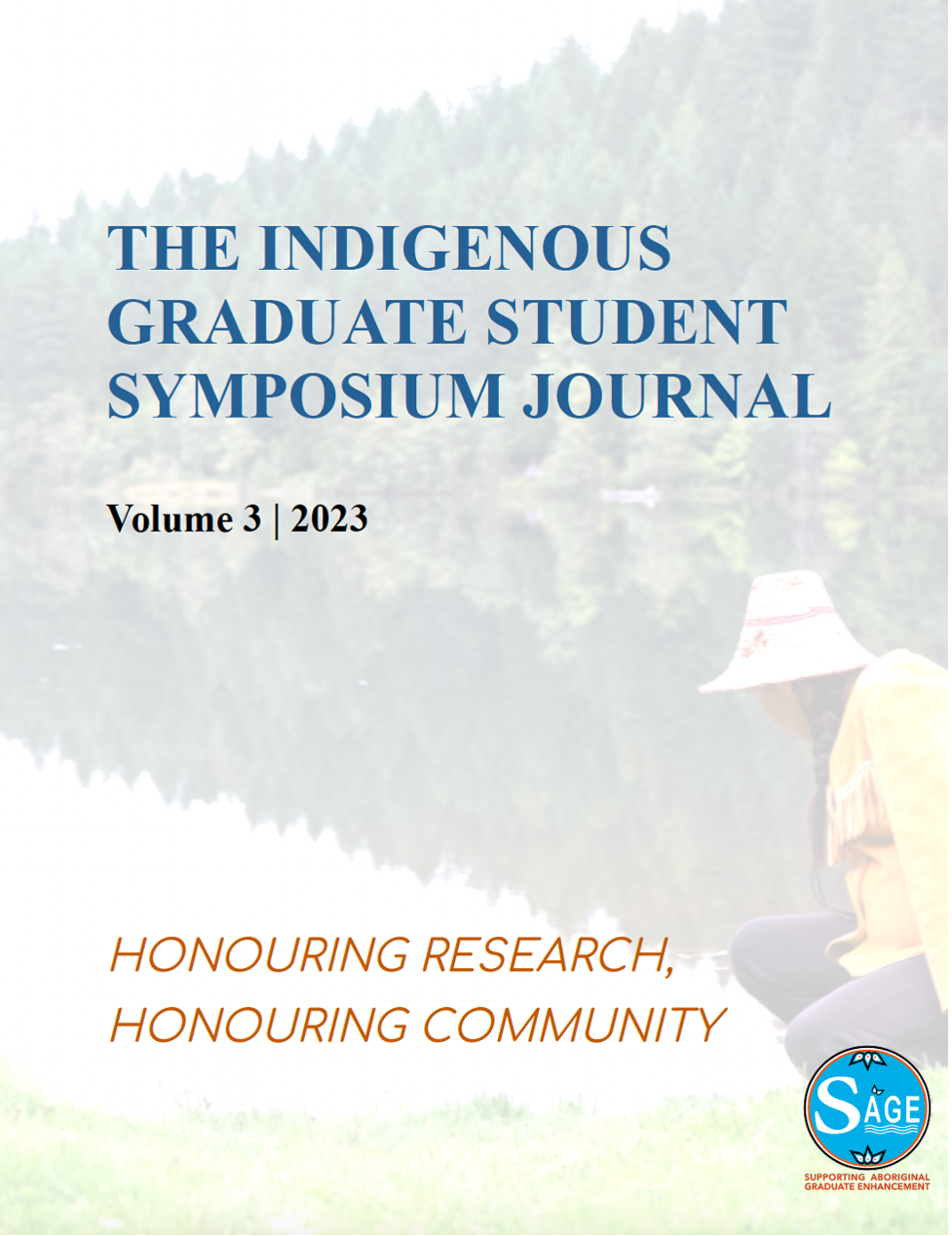Indigenous Well-being Through the Eyes of our Ancestors
Main Article Content
Abstract
Despite some improvements in the health of Indigenous peoples in Canada, a significant gap in mental and physical health remains. Barriers include a lack of access; lack of Indigenous service providers; lack of culturally safe non-Indigenous service providers; racism and discrimination in the health care system; remaining trauma from colonization, residential schools and child welfa:re systems and ongoing acts of colonization.
Indigenous Knowledge Keepers (IKKs) are a repository of knowledge on Indigenous worldviews of health and well-being; however, their expertise is rarely respected or incorporated in mainstream medical and mental health programs. To address this discrepancy, my research asked IKKs to articulate their views on wellness. Through many conversations, IKKs shared rich stories, experiences and conceptualizations of wellness.
The researcher has processed eleven key themes so far from these research conversations:
- “Wellness is Connection”;
- “Reciprocal and active belonging is key to wellness”;
- “Wellness is non-binary”;
- “Relationships are lateral and non-binary”;
- “Joy/vitality is key to wellness”;
- “Adaptiveness consists of flexibility and steadfastness”;
- “Respect for autonomy and tolerance for others”
- “Resurgence”;
- “Intentionality/Agency”;
- “A state of accompaniment is key to wellness”, and
- “Harmony is achieved through friendliness.”
The overarching theme of these conversations was the knowledge and influence of the teachings of ancestors. Guided by this persistent value, this presentation is titled after one participant’s statement: “Wellness is only through the eyes of our ancestors.”
Article Details

This work is licensed under a Creative Commons Attribution-NonCommercial 4.0 International License.

